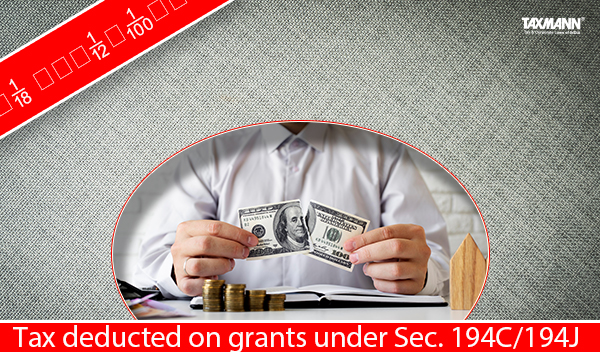Tax Deducted on Grants u/s 194C/194J Wouldn’t Disentitle Assessee to Claim Sec. 11 Exemption | HC
- Blog|News|Income Tax|
- 2 Min Read
- By Taxmann
- |
- Last Updated on 24 February, 2024

Case Details: Aroh Foundation vs. Commissioner of Income Tax (Exemption) - [2024] 159 taxmann.com 608 (Delhi)
Judiciary and Counsel Details
-
- Yashwant Varma & Purushaindra Kumar, JJ.
- Kamal Sawhney, Arun Bhadauria & Puru Medhira for the Petitioner.
- Abhishek Mahta, Parth Semwal & Ms Nupur Sharma, JSCs. for the Respondent.
Facts of the Case
The assessee was a non-governmental organisation registered as a charitable institution under Sections 12A read with 12AA and 80G. The assessee was working to uplift the poor and underprivileged children and women, improve their health, preserve the environment, and address other social causes. The assessee receives various grants from the government and the private sector to fulfil its charitable objectives.
During the assessment proceedings, the Assessing Officer (AO) observed that the donor deducted tax under sections 194C and 194J while allocating requisite grants to the assessee. Contending that receipts were towards professional or technical services or contractual income and the assessee was hit by the proviso to section 2(15) of the Act, AO denied the exemption under section 11.
Aggrieved by the order, the assessee filed a revision petition under section 264, but all in vain. Subsequently, the assessee filed a writ petition to the Delhi High Court.
High Court Held
The High Court held that the Proviso to Section 2(15) states that the advancement of any other object of general public utility involving trade, commerce, or service related to business for a fee is not considered charitable unless it’s directly linked to advancing public utility, and the revenue from such activities doesn’t surpass 20% of the trust’s total receipts in the previous year.
In the instant case, the sole reason to construe the receipt by donors under the tax regime was on the assumption it was received towards professional/technical services or contractual income as tax was deducted under Sections 194C and 194J. Further, there was no element of activity in the nature of trade, commerce or business, or any activity or rendering any service in relation to any trade, commerce or business.
If the deductor, under misconception, deducted tax under Sections 194C and 194J, it would not disentitle the assessee to claim benefit under Sections 11 and 12 unless the case of the assessee was specifically hit by the Proviso of Section 2(15).
Therefore, the proviso to Section 2(15) would not be attracted merely based on the tax deduction by the donor under a particular head, and accordingly, the writ petition was allowed.
Disclaimer: The content/information published on the website is only for general information of the user and shall not be construed as legal advice. While the Taxmann has exercised reasonable efforts to ensure the veracity of information/content published, Taxmann shall be under no liability in any manner whatsoever for incorrect information, if any.

Taxmann Publications has a dedicated in-house Research & Editorial Team. This team consists of a team of Chartered Accountants, Company Secretaries, and Lawyers. This team works under the guidance and supervision of editor-in-chief Mr Rakesh Bhargava.
The Research and Editorial Team is responsible for developing reliable and accurate content for the readers. The team follows the six-sigma approach to achieve the benchmark of zero error in its publications and research platforms. The team ensures that the following publication guidelines are thoroughly followed while developing the content:
- The statutory material is obtained only from the authorized and reliable sources
- All the latest developments in the judicial and legislative fields are covered
- Prepare the analytical write-ups on current, controversial, and important issues to help the readers to understand the concept and its implications
- Every content published by Taxmann is complete, accurate and lucid
- All evidence-based statements are supported with proper reference to Section, Circular No., Notification No. or citations
- The golden rules of grammar, style and consistency are thoroughly followed
- Font and size that’s easy to read and remain consistent across all imprint and digital publications are applied



 CA | CS | CMA
CA | CS | CMA
